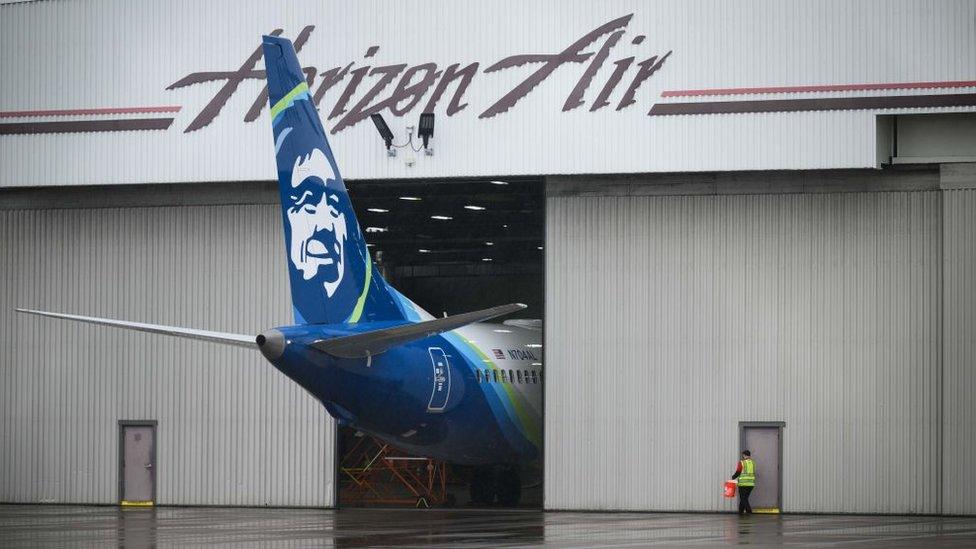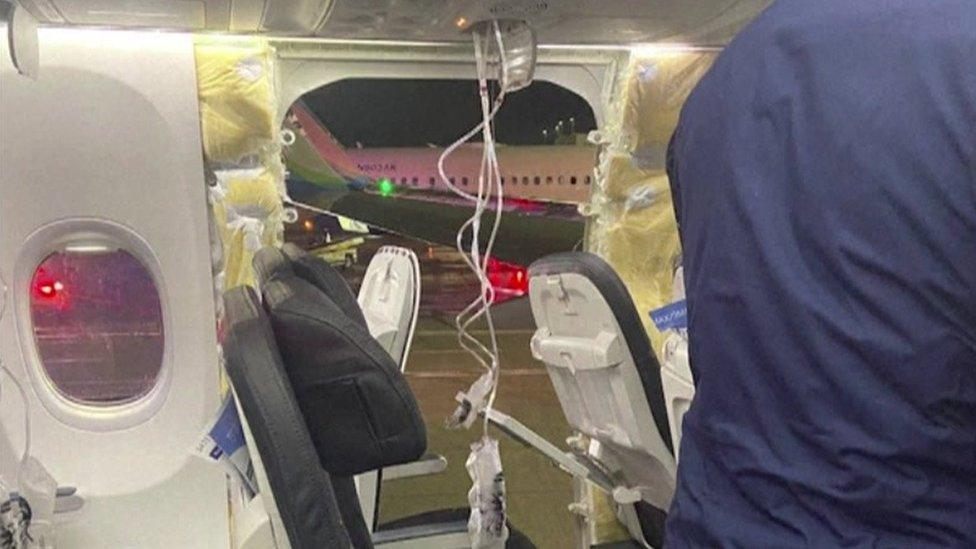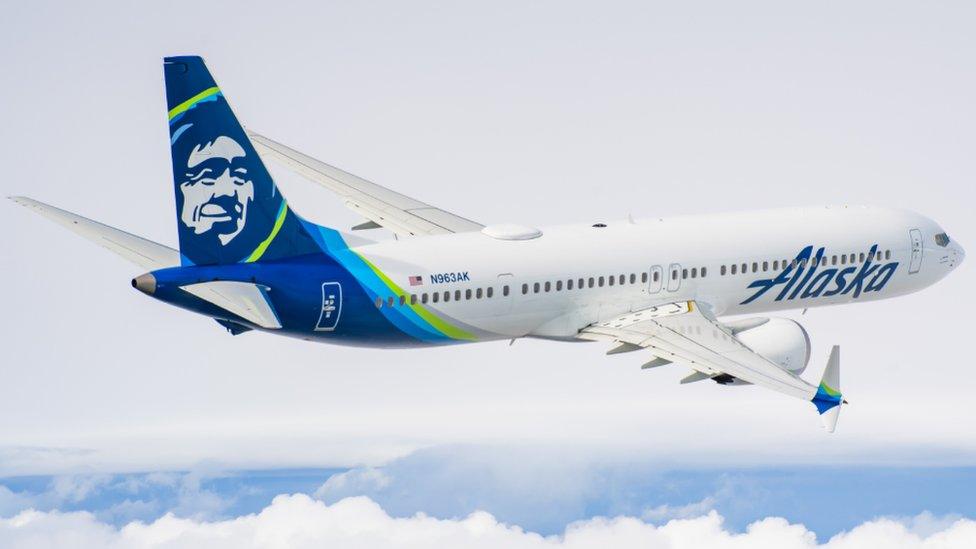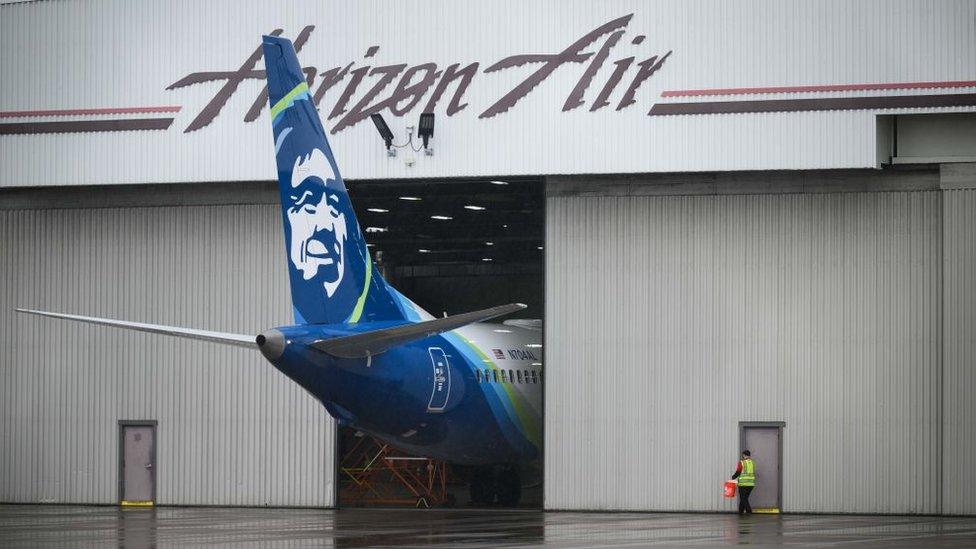Boeing safety checks to use 'more boots on ground'
- Published

The head of the US aviation regulator has said "more boots on the ground" will be used to step up safety checks on Boeing planes.
Federal Aviation Administrator Mike Whitaker told US lawmakers on Tuesday that Boeing is being "closely scrutinised" after a door plug broke off one of its planes last month.
No-one was seriously hurt in the mid-air blowout.
But issues found in inspections since have raised questions about standards.
Mr Whitaker told a congressional committee he would ensure aircraft manufacturer Boeing would be held accountable for any future failure or refusal to comply with the FAA.
His comments came in the wake of last month's incident in which an unused door blew out of an Alaska Airlines Boeing 737 Max nine minutes after take-off from Portland International Airport.
Although no-one was seriously hurt, the incident could have been much worse had it occurred later in the flight.
Since then, loose bolts and fixings on other planes, revealed in aircraft inspections, have called into question Boeing's manufacturing standards.
The airline manufacturer revealed this week that more defects had been found on parts of the fuselage - the main tube of the aircraft - which were sent to Boeing by its key supplier, Spirit AeroSystem.
The FAA itself has faced criticism for allegedly failing to impose sufficient oversight on Boeing.
Concerns were first raised in the aftermath of two catastrophic accidents affecting the 737 Max in late 2018 and early 2019, in which 346 people died.
At the time, the aviation regulator was accused of allowing itself to be unduly influenced by the company it was supposed to be overseeing - so-called "regulatory capture".
Last month's door blow-out has once again cast a spotlight on the work of the agency.

An unused door blew off a Boeing plane last month
Appearing before the House of Representatives Transportation and Infrastructure subcommittee, Mr Whitaker said inspections of 737 Max aircraft had shown that "the quality system issues at Boeing were unacceptable and require further scrutiny".
He pointed out that Boeing had already been prevented from expanding production of the 737 Max, and said the FAA had launched an investigation scrutinising Boeing's compliance with manufacturing requirements.
Mr Whitaker added that the FAA was looking forward to the results of a comprehensive review of Boeing's safety culture being carried out by a panel including representatives of the FAA, labour unions, engineering experts and others.
The FAA would "follow the data and take appropriate and necessary action", he said.
"Let me stress, the safety of the flying public is our mission," he concluded.
Responding to questions from lawmakers, Mr Whitaker said the Alaska Airlines incident had created two issues for the regulator.
"The first is what's wrong with this plane? The second is what's going on with Boeing?" he explained.
"They have had issues in the past, and they don't seem to be getting resolved."
He said the FAA currently had about two dozen inspectors working in Boeing's factories, with another half a dozen at Spirit Aerosystems.
However, he said no decision had been taken about the future of the ODA (Organisation Designation Authorisation), a system which allows Boeing to carry out some safety certification work itself on behalf of the regulator.
In the past, this system has been described as Boeing "marking its own homework".
Related topics
- Published14 January 2024

- Published12 January 2024
